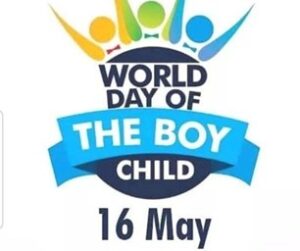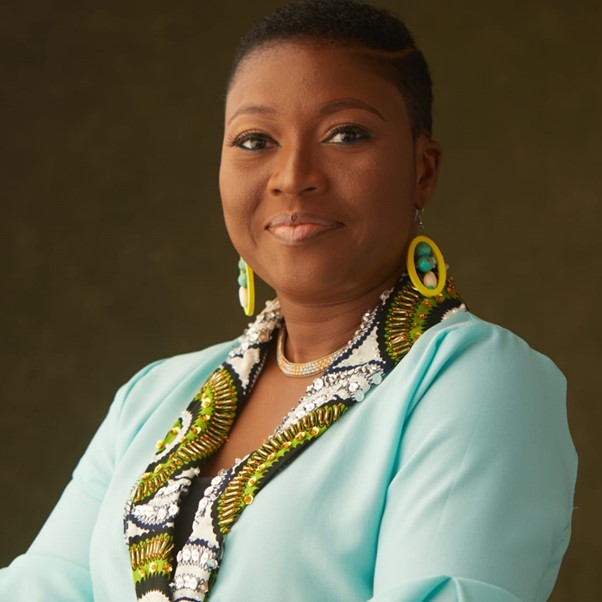World Day of the Boy Child falls on May 16 each year and is observed around the world by boy-child advocacy organisations. The global theme for 2023 is ‘Boys and mental health’.
Ghana’s foremost male child personal development initiative – Junior Shapers Africa (JSA) led by Ethel Adjorlolo Marfo – is raising awareness about five (5) factors affecting the mental & social health of the Ghanaian boy-child.

Despite significant progress in improving gender equality and empowering girls, boys continue facing unique challenges that affect their mental health and social development -leading to poor academic performance among others; thus, it has now become very important to recognise and address the challenges facing young boys in Ghana.
Here are five factors that are particularly relevant for Ghanaian boys from Ethel’s 8 years of interacting with boys through JSA’s extra-curricular initiatives. It’s her hope that parents and educators will pay heed to the needs of boys for betterment of our society.
- Father Absence Phenomenon
Many boys in Ghana are growing up in households with little involvement of fathers in their lives due to various reasons – such as death, neglect of pregnant women by men, poor fatherly leadership and direction in the home, separation, divorce, nature of father’s job, or migration. During JSA’s engagement with boys at Jamestown in Accra during 2020, it was observed that 4 out 5 boys go to bed and leave for school without seeing their father for days, weeks or months.

This story isn’t so different with children from middle- to upper-class homes. Boys complain of not having the opportunity to spend enough time with dads due to their busy work schedules. This is therefore resulting in negative consequences on their mental and social health, as boys often rely on male role-models for guidance and support as they transition into puberty.
The combination of an emotionally unavailable father and an overwhelmed busy mother may force some boys to align with bad peers, or rely on television and social media male role-models for masculine guidance – which can be dangerous.
- Poor Mental Health & Emotional Intelligence Awareness
Mental health issues are often stigmatised in Ghana, and boys may struggle to express their emotions and seek help when needed. This lack of awareness and understanding of emotional intelligence can lead to long-term mental health challenges; further leading to unhealthy relationships with themselves and others. School authorities must begin to prioritise mental health awareness for students.
- Disciplinary Discrimination by Parents & Teachers
In some homes and schools, boys are often subjected to harsher disciplinary measures than girls – which can have a negative impact on their self-esteem and social development.

Boys often complain about not being offered a fair hearing in their classrooms when, for instance, there is a fight or argument between a boy and girl. Teachers are seen often taking the side of girls and punishing the boys severely. This situation may contribute to the perpetuation of harmful gender stereotypes. An abused boy is likely to perpetuate abuse.
- Insufficient Exposure to Positive Male Role-Models and Mentorship Opportunities
In Ghana we have very few men initiating mentorship programmes for young boys. Many boys lack exposure to positive male role-models and mentorship opportunities, which can limit their potential for personal and social growth. In recent times, some boys derive inspiration from the male celebrities they see on television or social media platforms who display superficial affluence. This may lead to a misguided perception about masculinity, values and work-ethic among young boys.
- Lack of Validation for their Feelings, Emotions and Interests
“Barima nsu” – meaning ‘men don’t cry’ in Akan language – is often said to boys and men who dare to express their emotions or tears. This situation often pressurises boys to conform with traditional masculine norms and suppress their emotions and interests; which leads to a lack of validation for their individuality. There are sad incidences when parents ridicule their boys for allowing another child to bully them at school, or for choosing a career that is considered feminine. This can result in difficulties with forming authentic relationships and finding their place in society.

On this World Day of the Boy-Child, let us recognise these challenges and commit to creating a more equitable and supportive environment for all children in Ghana. By parents and educators addressing these factors affecting the mental and social health of Ghanaian boys, we can empower them to reach their full potential and thrive as healthy and confident future men, husbands and fathers. Ghandi once said: “It’s easier to build a boy than to build a man”.
JSA is looking foward to collaborating with mental health experts in Ghana to organise its maiden mental health fitness walk for boys and dads.
About World Day of the Boy-Child (WDBC)
May 16th is International Day of the Boy-Child. It was founded in 2018 by Dr. Jerome Teelucksingh – a university lecturer from the Republic of Trinidad and Tobago. It focuses on boys and their well-being, their needs to feel happy, healthy and valued within family and community. There is an urgent need to focus on the home and school in order to save the boy-child.

About Junior Shapers Africa (JSA)
Founded in 2015, Junior Shapers Africa (JSA) is Ghana’s foremost boy-child & male-youth personal development initiative established to address the silent struggles of boys and inspire them to become phenomenal gentlemen for the betterment of our society. Annually, JSA runs a variety of extra-curricular programmes, under the name JSA Phenomenal Boys Academy, to train and counsel various age-groups of boys.

JSA Alumni Executives
JSA’s IMPACT
- JSA has trained and counselled close to 9,000 boys/youth in personal development through virtual sessions, camps and events.
- 93 Sessions & Camps held so far
- 7 Countries represented by African boys: from Ghana, Liberia, USA, UK, Thailand, Uganda and Nigeria
- JSA has been supporting the educational needs of less-privileged boys since 2016. We are currently funding the 3-year tertiary education of a mechanical engineering student at Accra Technical University
- JSA is blessed with an inspiring alumni community who inspire our junior gentlemen annually through peer mentorship.
>>>the writer is Founding Director of Junior Shapers Africa & JSA Phenomenal Boys Academy. She can be reached via [email protected]










